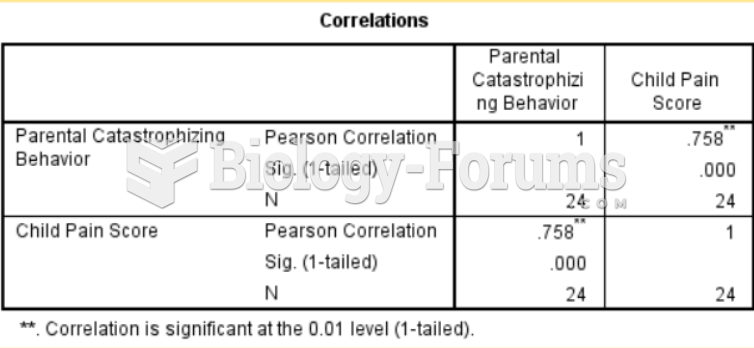|
|
|
Your heart beats over 36 million times a year.
Although not all of the following muscle groups are commonly used, intramuscular injections may be given into the abdominals, biceps, calves, deltoids, gluteals, laterals, pectorals, quadriceps, trapezoids, and triceps.
Between 1999 and 2012, American adults with high total cholesterol decreased from 18.3% to 12.9%
Though newer “smart” infusion pumps are increasingly becoming more sophisticated, they cannot prevent all programming and administration errors. Health care professionals that use smart infusion pumps must still practice the rights of medication administration and have other professionals double-check all high-risk infusions.
The most common treatment options for addiction include psychotherapy, support groups, and individual counseling.







